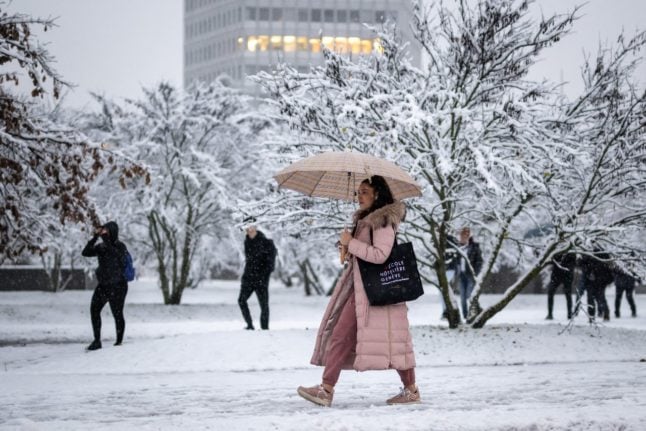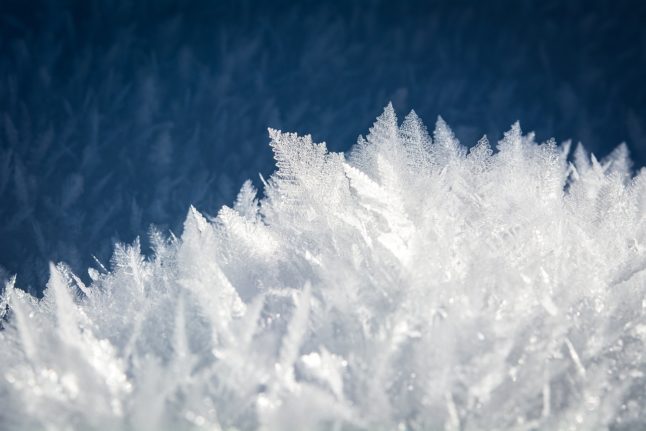On Friday morning the first snow arrived in the Swiss lowlands – including Bern and Solothurn – while Geneva saw 6 centimetres of fresh snow and 15 centimetres landed in Fribourg.
In the canton of Bern alone, there were over fifty accidents on the roads by 8:00 am on Friday, while in Geneva, emergency services were called out around 60 times from midnight to late morning because of the snowfall, according to the fire department. Firefighters were particularly busy clearing fallen trees and fallen branches from roads.
READ ALSO: EXPLAINED: What to do if you have a car accident in Switzerland
At Geneva Airport, the snow was causing disruption on the runways and delayed flights between 06:00 and 07:00 am by around an hour, an airport spokeswoman told the Keystone-SDA news agency.
Most of the downfall was concentrated in the mountains and in the west of the country, while east of Zurich the snowfall was limited and there was no snow recorded at all in the Glarus and Chur regions.
What’s the outlook for the weekend?
According to Meteo News, the snowfall will continue: “In the night on Friday, with the exception of the eastern foothills and northern Bünden, snow is increasing” it said.
In the mountains, 5 to 30 centimetres of fresh snow are expected to fall on Friday and will be particularly heavy in western regions of 1500 metres and above. That includes the western Alps, the Vaud Alps, the Bernese Oberland and also parts of the Valais. The further east you go, however, the less snow will fall.
According to SRF, snow showers will persist north of the Alps on Saturday, while the Alpine valleys will see rain or sleet. Meteo Schweiz expert, Daniel Murer told news outlet Watson that he expects widespread snowfall to set in on Saturday morning in the lowlands and in the west, which will then ease off in the evening. On the central, eastern and northern slopes of the Alps, snowfall will continue until Sunday afternoon, he said.
On Sunday, the weather is expected to turn milder, with the last snow showers in the east appearing early in the day before the weather turns sunnier.
READ ALSO: Today in Switzerland: A roundup of the latest news on Friday
The lowlands and the northern side of the Alps are expected to see between 1 and 5 centimetres of new snowfall on Sunday, while up to 10 centimetres of snow could still arrive in the western midlands and near the foothills of the Alps, and between 10 and 15 centimetres on the central and northern slopes of the Alps.
For most of the country, the temperature will barely reach above freezing on Sunday and icy temperatures look set to prevail at the beginning of next week. People should wrap extra warm on the way to work on Monday morning, as the forecasts suggest that icy cold will persist throughout most of the country, with temperatures between -3 and -7 degrees.



 Please whitelist us to continue reading.
Please whitelist us to continue reading.
Member comments